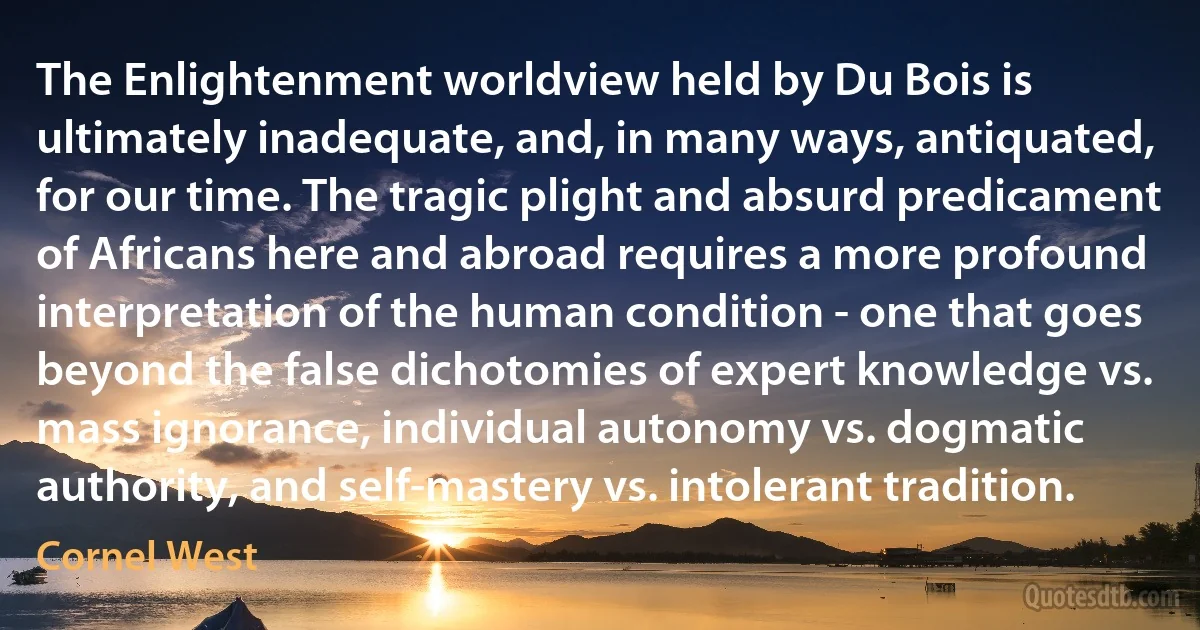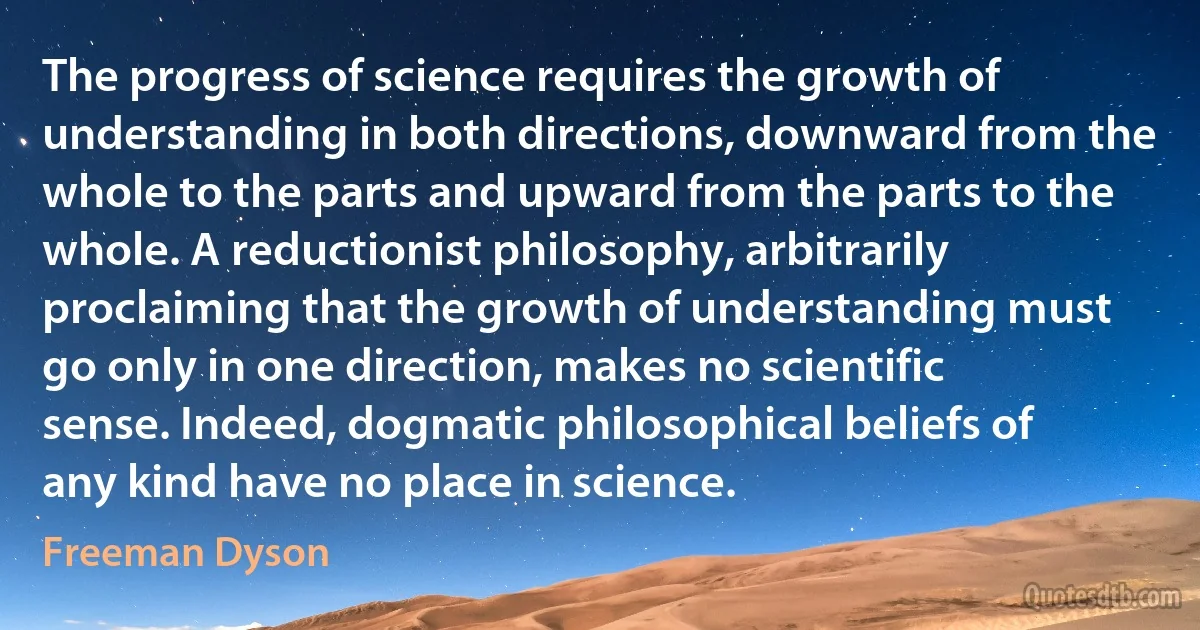Dogmatic Quotes - page 3
The rest were standing around in hatless, smoky little groups of twos and threes and fours inside the heated waiting room, talking in voices that, almost without exception, sounded collegiately dogmatic, as though each young man, in his strident, conversational turn, was clearing up, once and for all, some highly controversial issue, one that the outside, non-matriculating world had been bungling, provocatively or not, for centuries.

J. D. Salinger
The phrase laissez-faire is not to be found in the works of Adam Smith, of Ricardo, or of Malthus. Even the idea is not present in a dogmatic form in any of these authors. Adam Smith, of course, was a Free Trader and an opponent of many eighteenth-century restrictions on trade. But his attitude towards the Navigation Acts and the usury laws shows that he was not dogmatic. Even his famous passage about 'the invisible hand' reflects the philosophy which we associate with Paley rather than the economic dogma of laissez-faire.

John Maynard Keynes
What do we know? What do we really know? He licks his dried cracked lips. We know this apodictic rock beneath our feet. That dogmatic sun above our heads. The world of dreams, the agony of love and the foreknowledge of death. That is all we know. And all we need to know? Challenge that statement. I challenge that statement. With what? I don't know.

Edward Abbey
Well, we haven't learnt yet to live together peacefully... But I don't know what progress really means. Anyway, I think we need to have faith in the fact that there is more out there to be explained. Even the paradigms that we now have, including subjective value theory, for example, are only provisional. Some physicist might believe that ultimately, we will be able to explain everything. To me, that is utterly stupid, just like saying that an atheist is equally dogmatic as a Texas Baptist. It seems to me that, if you accept evolution, you can still not expect your dog to get up and start talking German. And that's because your dog is not genetically programmed to do that. We are human animals, and we are equally bound. There are whole realms of discourse out there that we cannot reach, by definition. There are always going to be limits beyond which we cannot go. Knowing that they are there, you can always hope to move a little closer – but that's all.

James M. Buchanan
Diversity of opinions on theoretical points is never dangerous to the party. There are for us no bounds to criticism, and however great our respect may be for the founders and pioneers of our party, we recognize no infallibility and no other authority than science, whose sphere is ever widening and continually proves what it previously held as truths to be errors; destroys the old decayed foundations and creates new ones; does not stand still for an instant; but in perpetual advance moves remorselessly over every dogmatic belief.

Wilhelm Liebknecht
One way to clarify the origin and character, if not the justification, of the ideal inspiring our programmatic institutional ideas is to say that our program arises from the generalization of aims broadly shared by the great secular doctrines of emancipation of the recent past-both liberal and socialist-and by the social theories that supported them. At the heart of each of these doctrines lay the belief that the weakening of social divisions and hierarchies would reveal deeper commonalities and liberate productive and creative powers. The theoretical and practical consequences of this belief were drastically constricted by dogmatic assumptions about the possible forms of social change and their possible institutional expressions. We have attacked the second set of constraints and therefore, by implication, the first. The result is a more generalized or radicalized version of the social ideal. Our attack on these constraints has led us to rethink the content of the progressive cause.

Roberto Mangabeira Unger
The basenesses so commonly charged to religion's account are thus, almost all of them, not chargeable at all to religion proper, but rather to religion's wicked practical partner, the spirit of corporate dominion. And the bigotries are most of them in their turn chargeable to religion's wicked intellectual partner, the spirit of dogmatic dominion, the passion for laying down the law in the form of an absolutely closed-in theoretic system.

William James
I muse again on the dogmatic assertion which I often make that the countryman's relation to Nature must never be anything else but an alliance... When we begin to consider Nature as something to be robbed greedily like an unguarded treasure, or used as an enemy, we put ourselves in thought outside of Nature, of which we are inescapably a part.

Henry Beston
The source of totalitarianism is a dogmatic attachment to the official word: the lack of laughter, of ironic detachment. An excessive commitment to Good may in itself become the greatest Evil: real Evil is any kind of fanatical dogmatism, especially exerted in the name of supreme Good... Consider only Mozart's Don Giovanni at the end of the opera, when he is confronted with the following choice: if he confesses his sins, he can still achieve salvation; if he persists, he will be damned forever. From this viewpoint of the pleasure principle, the proper thing to do would be to renounce his past, but he does not, he persists in his Evil, although he knows that by persisting he will be damned forever. Paradoxically, with his final choice of Evil, he acquires the status of an ethical hero - that is, of someone who is guided by fundamental principles beyond the pleasure principle and not just by the search for pleasure or material gain.

Slavoj Žižek



